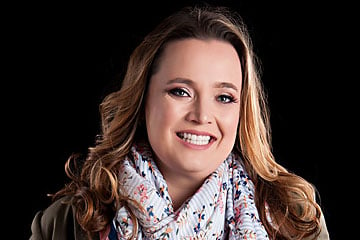
With diversity issues making headlines in Ontario and Quebec, large law firms have a platform to pressure the rest of the profession to make equity a priority, says Rebecca Bromwich, the new national manager of diversity and inclusion at Gowling WLG.

With diversity issues making headlines in Ontario and Quebec, large law firms have a platform to pressure the rest of the profession to make equity a priority, says Rebecca Bromwich, the new national manager of diversity and inclusion at Gowling WLG.
Bromwich says lawyers have made progress since she spent six years as a staff lawyer to the Canadian Bar Association, where she focused on law reform and equality. Still, Bromwich says there is much more work to be done.
“When I was with Canadian Bar Association, we were in a place where we were working with firms developing the business case for diversity and inclusion,” says Bromwich, who is based in Ottawa. “I actually think large firms, in particular, have seen the demand and the benefit, and the business case has been made out to the large, multi-national firms. . . . I think that, from my research I conducted prior to coming here, there has been less progress, from the perspective of some smaller firms, where, for example, there might not be parental leave and things like that. So I think large firms can lead and hopefully that can create the pressure for the legal profession as a whole to follow.”
She says that religious inclusion is a top priority for the firm. For example, Quebec’s hijab-wearing lawyers have said their careers are threatened by rules associated with secularism legislation. The Law Society of Ontario — which may repeal the requirement that lawyers must profess written support for diversity and inclusion — has also announced a policy review after the Barrister Examination earlier this month coincided with Eid.
“Events are important, and so is education for our people at Gowling, as well as engagement in the public realm and recruitment and retention issues — to try and address historical inequalities that continue to be a problem in law firms. Generally, intersectional work toward increasing levels of diversity in the firm is something you can quantify, while increasing inclusion is harder to quantify but is really about culture and our embrace of diversity,” she says.
“We are looking at ways we can better accommodate religious and cultural practices and making sure we’re not contributing any barriers to people who might be practising things like Ramadan or other high holidays.”
Bromwich is not the first to lead diversity initiatives at Gowling WLG. She says her new role is part of an expansion to the firm’s diversity and inclusion council. The firm will ramp up its mental health program, announced last year, and this month started a social media campaign and film screening for National Indigenous Peoples Day.
“There is so much potential for law and legal services to be provided in innovative ways that make those services accessible to clients — regardless of their gender, racial, sexual, disability or any kind of dimensions of their identity,” she says. “Diversity is so core to us providing the best legal services we can and ensuring that people thrive in the legal profession. Mental health is actually really closely connected with recruitment and retention and diversity and inclusion. All those things are really important . . . toward making law livable.”